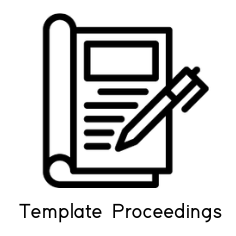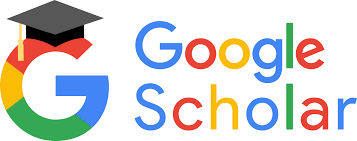Perceptions of Transferrable Skills of Chemistry Teacher Candidates in the Utilization of Learning ICT
DOI:
https://doi.org/10.29103/micoms.v3i.208Keywords:
Perceptions, Transferrable, ICT, Chemistry TeacherAbstract
Transferable skills are the core competencies needed to apply basic skills and problem-solving skills to make the environment one of the main elements of education policy. This research was conducted at the Chemistry Education Study Program, at Malikussaleh University in September and November 2022. This research aims to: Know the perceptions of prospective teachers regarding the transferable skills they have in utilizing ICT for learning. This type of research is qualitative descriptive research. The subjects of this research are students in the Chemistry Education Study Program with the object of research namely Perception of Transferable skills. The data collection techniques used are questionnaires and interviews in utilizing ICT learning based on aspects of transferable skills. The data analysis carried out for this study was to process and describe data with descriptive statistics. Measuring the score of the questionnaire data results is calculated using a Likert scale measurement scale. The results obtained from this study, namely students' perceptions of their transferable skills indicate that the perceptions of prospective teachers are more prominent in the aspects of collaboration and communicating with students. As for the characteristics of mastering digital literacy, future teachers still feel that they are not optimal in utilizing digital technology, which is now widespread and widespread in the world of education.
References
Wijaya, E.Y. 2016. Transformasi Pendidikan Abad 21 sebagai Tuntutan Pengembangan Sumber Daya Manusia di Era Global. Prosiding Seminar Nasional Pendidikan Matematika (hal. 263-278). Malang: Universitas Kanjuruhan Malang
Redhana, I. W. (2019). Mengembangkan keterampilan abad ke-21 dalam pembelajaran kimia. Jurnal Inovasi Pendidikan Kimia, 13(1).
Rizal, R. 2019. Digital Literacy of Pre-service Science Teacher. Journal of Physic.
Rahman, Abdul, dkk. 2021. Analisis UU Sistem Pendidikan Nasional Nomor 20 Tahun 2003 dan Implikasinya Terhadap Pelaksanaan Pendidikan Di Indonesia. JOEAI (Journal of Education and Instruction). Vol. 4, No 1. (98-107).
Isbiyantoro, S. (2021). Kajian Transferable skills Guru Produktif Ditinjau dari Pengalaman Mengajar. JUPITER (JURNAL PENDIDIKAN TEKNIK ELEKTRO), 6(2), 5-11.
Yatno. 2013. Teaching Skills Dan Responsibility Problem. Varia pendidikan, vol. 25. No. 2, Desember 2013. Pp 83-97.
Kurnia, D., Dittrich, J., & Murniati, D. E. (2014). Transferable skills in technical and vocational education and training (TVET) in Indonesia. TVET@ Asia, 3, 1-16.
Luke, L. Y. Y., Ho, R., & Chan, C. K. Y. 2014. Engineering Undergraduates’ Perception of Transferable Skills in Hong Kong. In The 8th International Technology, Education and Development Conference (INTED2014) (796–802). Valencia, Spain: IATED.
Olsen, K. M., Sverdrup, T. E., & Kalleberg, A. L. 2019. Turnover and Transferable Skills in a Professional Service Firm. Journal of Professions and Organization, 0, 1–15.
Hassan, A., Maharoff, M., & Abiddin, N. Z. (2014). The Readiness of Lecturers in Embedding Soft Skills in the Bachelor's Degree Program in Malaysian Institutes of Teacher Education. Journal of Education and Training Studies, 2(3), 138-143.
Siswandari. 2009. Peningkatan Kualitas Pembelajaran Statistika dalam rangka Mengembangkan Transferable Skills Mahasiswa. Jurnal Pemikiran dan Penelitian Pendidikan Tinggi Akademika Volume 1 No. 1 Januari 2009.
Hanik, E.U.(2020). Self directed learning berbasis literasi digital pada masa pandemi covid-19 di madrasah ibtidaiyah. ELEMENTARY: Islamic Teacher Journal, 8 (1), 183-208.
Downloads
Published
Issue
Section
License
Copyright (c) 2022 Ratna Unaida, Isna Rezkia Lukman, Fakhrah

This work is licensed under a Creative Commons Attribution-ShareAlike 4.0 International License.
COPYRIGHT NOTICE
Authors retain copyright and grant the journal right of first publication and this work is licensed under a Creative Commons Attribution-ShareAlike 4.0 that allows others to share the work with an acknowledgment of the work's authorship and initial publication in this journal.
All articles in this journal may be disseminated by listing valid sources and the title of the article should not be omitted. The content of the article is liable to the author.
Authors are able to enter into separate, additional contractual arrangements for the non-exclusive distribution of the journal's published version of the work (e.g., post it to an institutional repository or publish it in a book), with an acknowledgment of its initial publication in this journal.
Authors are permitted and encouraged to post their work online (e.g., in institutional repositories or on their website) prior to and during the submission process, as it can lead to productive exchanges, as well as earlier and greater citation of published work.
In the dissemination of articles, the author must declare https://proceedings.unimal.ac.id/micoms/index as the first party to publish the article.






